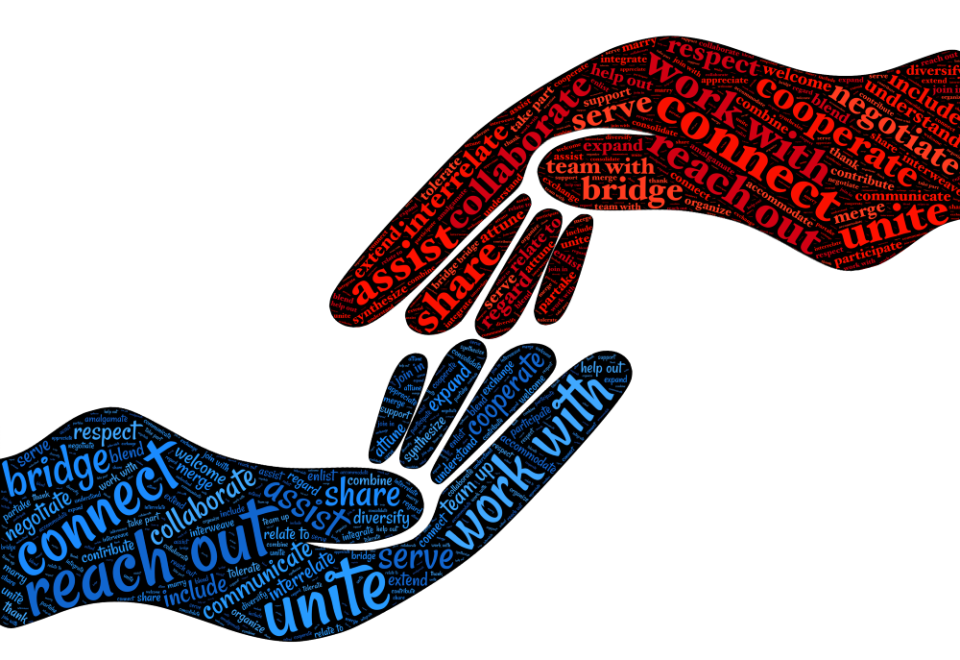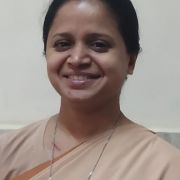While we were on the school playground, we often heard the coach shout the motto: "United we stand, divided we fall." His loud voice drilled into us that strong message that in order to win we had to be united. Today, in the context of impoverishment as a glaring Indian social reality, these words are relevant more than ever as we network and collaborate with various organizations.
The plight of marginalized Indian women who grapple with feelings of meaninglessness or fear that they lack resourcefulness beckons us to come together. We must realize that collaborating with each other is not only desirable, but, perhaps, the only way to enable our women to live more authentically. Networking with various groups, such as civil bodies, private agencies, NGOs and even government agencies, keeps us motivated and at the same time energizes the women in need.
I realize that in the process of networking, we are engaging with the affected in critical reflection, helping them to analyze their problems, look inward, and challenge structures and systems. It also helps us to perceive their concerns from a perspective that generates better ways of thinking and acting. These experiences and perspectives of networking can be expressed through the acronym ACT: Awareness, Challenges, Transformation.
Though difficult to categorize yet, I wish to state two levels of awareness, both within myself and among marginalized women. I realize that these battered women experience many layers of poverty. Their poverty is much more than a lack of food, basic facilities or monetary resources. It is a poverty of believing in oneself, which seems to arise because of an ignorance of their innate gifts. It is this poverty that makes them suffer more. A second awareness is about listening.
Advertisement
Advertisement
Listening to their lived experiences and understanding their problems from their perspectives continues to be an enriching process for me. But more than this, I realize that a deep listening is an empowering process for them, as it creates a space for valuable conversations, deeper introspection and refreshed thinking as it brings in new insights within them — a different perspective on their problems that are in the context of hidden, oppressive, unwritten social norms.
This process of listening also brings a new awareness of state policies and entitlements — and a new energy is born! They also begin to see a larger picture, that poverty is multilayered and that they are not solely responsible for their state of poverty. They become aware that the root of the problem is systemic, imposed and intergenerational. They then get in touch with their own resourcefulness, beginning with increased self-esteem, the need for teamwork and risk-taking.
But networking is a challenge. The challenges of unending and elaborate bureaucratic hassles, corruption, lack of political will to work for the poor, and the silence and indifference of civil society continue to cause a stalemate. How true what Martin Luther King said: "The ultimate tragedy is not the oppression and cruelty by the bad people, but the silence over that by the good people."
As if these outside challenges aren't sufficient, the challenges from networking agencies who vie with each to be in the limelight can be disgusting. Some of them have ulterior motives for collaboration, which make their altruistic deeds farcical. There is also a challenge from the affected women themselves who fear repercussions and a fragile future — especially the fear of losing daily wages — so they prefer to suffer silently. In addition, many of them are caught in the web of patriarchy and a "karmic mindset" that gets sanctioned over and over again by religion — of which they are blind followers.
Despite these challenges, networking gives new hope, as it is truly laying an invisible path and an undying process of transformation in their attitudes, intentions, aspirations, and actions. Networking and collaborating result in this transformation both in us and in our women, as we:
- Become hopeful: Even at times when we fail, we are able to bounce back.
- Become courageous: The support that we receive from like-minded persons gives us courage to face life and its challenges.
- Become assertive: We are now able to articulate and assert amidst disabling structures and make our voices heard.
This transformation journey is the power of networking. Networking humanizes our society. It teaches us that for people kept in ignorance, knowledge is power. Though fear and crippling attitudes remain, networking is power. Engaging is power, a power to the one who engages and a power to the one who is engaged with. Networking continues to remind me of growth. Growing is power, and to grow (and to outgrow) is the only way to be human.
Like what you're reading? Sign up for GSR e-newsletters!



